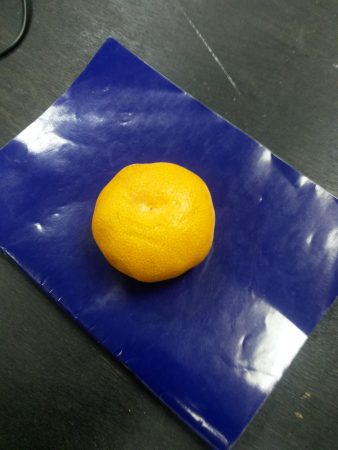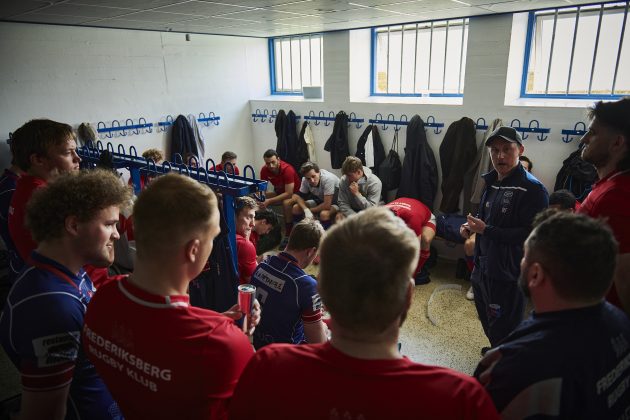The final whistle is also the signal to start your recovery for the next match. Here's how to get that right, from restoring your energy levels to achieving a great look
7 expert tips on how to heal after a rugby match
1. Cool down
During a match, muscle fibres, tendons and ligaments become damaged and waste products build up in the body. An effective cool-down is necessary to aid recovery and this should start with five minutes of gentle exercise.
So do some light aerobic exercise such as jogging or walking, coupled with upper-body drills such as arm swings, shoulder circles and backslaps.
This will help the heart rate return to a resting pulse rate and prevent the pooling of blood in the limbs, so reducing feelings of fatigue. Include deep breathing in your cool-down to help the body recover by oxygenating the system.
Follow this with 5-10 minutes of static stretches. This will help the joints and muscles return to their normal length and function, accelerating the recovery process. Using static stretching in the cool-down will increase flexibility and may reduce the risk of future injury.
2. Eat to recover
You need to restore the energy you expended in the match, so nutrition is crucial. Fast-releasing carbohydrates and protein will kick-start your recovery by replenishing the glycogen levels in your muscles.
A whey protein shake with a fruit smoothie containing tart cherry juice is a good post-game option, followed by a meal of, say, chicken breast with a rainbow of veg and sweet potato. A burger made with 65% beef and chips laced with fatty oil is best avoided!

Healthy snack: satsumas are bursting with Vitamin C
A high-protein sushi box is a great source of omega-3 that will help sore joints. Protein stimulates the body’s ability to repair and grow muscle and players should aim to consume 1.8-2g of this per kg of bodyweight each day.
Related: Top Ten Anti-inflammatory Foods
Supplements can be valuable, especially Vitamin D3, which boosts the immune system. The body generates it from sunlight but many athletes take Vitamin D as a supplement during the winter months. Always buy supplements from an Informed Sport-registered company.
If you are tempted to have an alcoholic drink, pick a bottle of beer or a single-serving spirit and low-calorie mixer. A pint of lager contains about 300kcal (similar to a Mars bar), but a bottle of lager is less than half that at about 130kcal.
3. Rehydrate
Hand in hand with nutrition is rehydration because vigorous exercise will lead to a loss of water through sweat. Players need to replace this water loss to avoid overheating and enable the body to function properly – even a 1-2% reduction in bodyweight through fluid loss can impair athletic performance.
So following a match, aim to drink one and a half times the fluid you have lost whilst exercising. Not in one go – spread it out over the next two to six hours. Avoid diuretics, such as caffeine and alcohol. And add a pinch of salt to your meal – ingesting salty foods or a sports drink can help you rehydrate faster than by drinking water alone.

Fuelling station: it’s important to replace the fluid that you lose during strenuous activity (Philip Barker)
4. Spruce up
A rugby player’s hair is very important to them. So once you’ve washed off the mud and sweat, get your haircare nailed by using a shampoo that will do you justice.
The T/Gel Therapeutic Shampoo, with its unique coal tar formula, will help treat any scalp issues, such as dandruff or an itchy scalp. Following this, regular use of the T/Gel Daily Anti-Dandruff Shampoo range will maintain a healthy scalp and keep your hair looking sharper than a Marcus Smith line break.

Feel healthy, look good: part of the T/Gel Shampoo range
Making the T/Gel Daily range part of your routine won’t just make you look good either. Because when you feel better about yourself, you are more confident and that leads to improved performance.
Related: Stay on top of your game with T/Gel
5. Sleep well
Sleep plays a critical role in recovery. It helps athletes recover from physical exertion and prepares them for the next training or match. Dairy milk options are great before bed as they provide a good source of protein and calcium to support players’ muscles and bones.
Aim to consume 20-30g of protein in a pre-bed snack – for example, a glass of milk and a Greek yoghurt. Milk is not only cheap but contains casein, a slow-release protein that supports muscle recovery and repair whilst you sleep.
Pumpkin seeds are easy to add to your diet and are a natural source of tryptophan, an amino acid that regulates your sleep cycle. And magnesium activates neurotransmitters responsible for calming the body and mind. You’ll find it in nuts and seeds, green leafy veg and fruits such as bananas, kiwi fruit and berries.
6. Stay active
Any physical activity that gets your muscles working and your heart pumping will help supply your tissues with freshly oxygenated blood, so flushing out any lactic acid. It’s called active recovery and it will ease any pain and stiffness you might have after a rugby match.
Swimming is a great active recovery exercise the day after a game – a gentle 10-20 minutes in the pool will suffice – or you may prefer a spot of cycling. If going to the gym, opt for a 50/50 workout: half your normal weight load and volume. Stop well before you feel any fatigue.
Active recovery restores mobility to exercised limbs and boosts endorphins, the body’s natural painkillers.

Action from a grass-roots match. Follow simple rules to improve your rugby performance (Philip Barker)
7. Mind your mind
Don’t underestimate the importance of mental health. Fortunately, the mere act of exercise such as a rugby match is beneficial because it releases hormones like serotonin and dopamine that are important to your mood.
But never be complacent. Take responsibility for your wellbeing. “Write down a routine, a training blog, a food diary or even a journal about how you feel,” suggests mental resilience coach James Elliott. “This will allow you to identify places to improve and what feels most effective for you.”
And communication is vital. In the bar after a match, keep an eye on friends and team-mates. If anyone is more distant than usual, is less vocal than you’ve come to expect, encourage them to talk. They might be struggling and welcome the chance to share their thoughts.
Neutrogena T/Gel Therapeutic Shampoo is a medicine that contains Neutar solubilised coal tar treatment of seborrhoeic dermatitis of the scalp, scalp psoriasis and dandruff. Always read the label. UK-NG-2200204
Follow Rugby World on Facebook, Twitter and Instagram.





